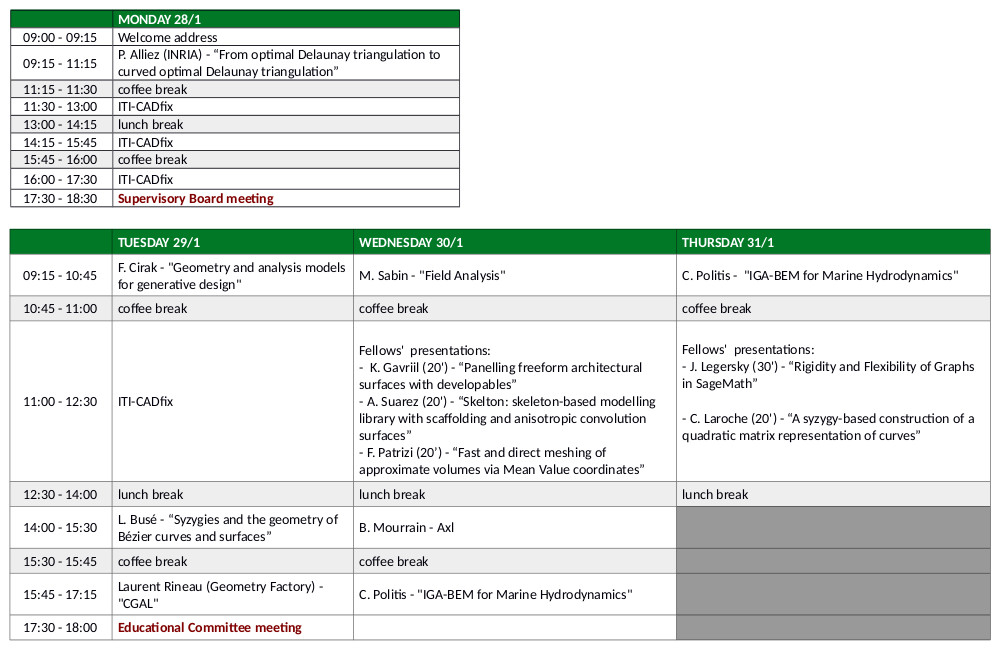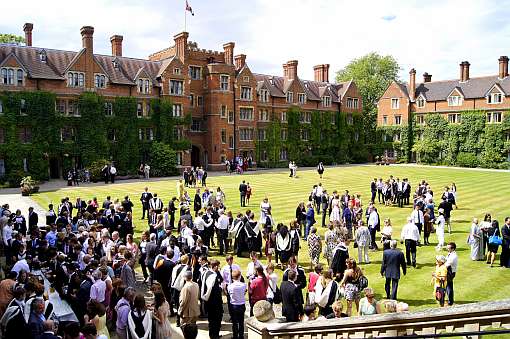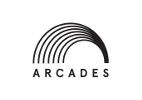
- This event has passed.
2nd Software & Industrial Workshop, in Cambridge
January 28, 2019 - January 31, 2019
2nd Software and Industrial Workshop in Cambridge

By Drianhoward at en.wikipedia, CC BY 2.5, https://commons.wikimedia.org/w/index.php?curid=18782866
Schedule of the event

The event will start on Monday, January 28 and will close on Thursday, January 31. It will take place at the Diamond Room in Selwyn College. You can download a pdf version of the schedule here.
There is a day-long software tutorial by International TechneGroup Ltd (ITI) on CADfix, while several ARCADES fellows shall present their software-related work. The speakers are:
- Pierre Alliez (INRIA): “From optimal Delaunay triangulation to curved optimal Delaunay triangulation”,
- Laurent Busé (INRIA): “Syzygies and the geometry of Bézier curves and surfaces”,
- Fehmi Cirak (U. Cambridge): “Geometry and analysis models for generative design”,
- Bernard Mourrain (INRIA): “Axl”,
- Costas Politis (U. Western Attica, Greece): “IGA-BEM for Marine Hydrodynamics”,
- Laurent Rineau (GeometryFactory): “CGAL”,
- Malcolm Sabin (U. Cambridge): “Field Analysis”,
- Sukrit Shankar (3D Industries): “shapes.ai”.
- Fellows’ presentations:
- Konstantinos Gavriil “Paneling freeform architectural surfaces with developables”
Abstract: Motivated by applications from architecture and design, we present a novel optimization method for the problem of increasing the developability of an arbitrary surface. We base our method on the property that the Gauss image of a developable surface is 1-dimensional and can be locally well approximated by planar and thus circular Gauss images. A variation of the main method allows us to tackle the problem of paneling a freeform surface with (rotational) cylindrical, (rotational) conical and planar panels, which are the main preferred types of developable panels in architecture due to the reduced cost of manufacturing. - Jan Legersky “Rigidity and Flexibility of Graphs in SageMath”
Abstract: In this talk, a SageMath package for investigating rigidity and flexibility of graphs is presented. The main focus is on the combinatorial properties related to NAC-colorings of a graph, since they provide some necessary/sufficient conditions on movability of the graph. - Alvaro Suarez “Skelton: skeleton-based modeling library with scaffolding and anisotropic convolution surfaces”
Abstract: In this talk we are going to present Skelton, a C++ library that integrates our recent results in scaffolding and anisotropic convolution surfaces. We are going to briefly introduce both problems, our solutions, and showcase some examples using the library. A Python version of the library, PySkelton, will be used to illustrate the latest advances not yet fully merged into Skelton. - Clément Laroche “A syzygy-based construction of a quadratic matrix representation of curves”
Abstract: This algorithm, written in SageMath, takes the parameterization of a rational curve (in the plane, the space or, more generally, the n-th dimensional space) and outputs a matrix M(X) depending on a point X and verifying “X belongs to the curve <=> Rank(M(X)) < #Rows(M(X))". Such a matrix is an implicit representation of the curve so this algorithm falls within the scope of the important problem of implicitization. The specificity of our matrix representation is that its entries are either linear or quadratic with respect to the coordinates of X, which allows it to be smaller in size than matrix representations with linear entries. We will discuss on the advantages and drawbacks of using such a method compared to other implicitization algorithms. - Francesco Patrizi “Fast and direct meshing of approximate volumes via Mean Value coordinates”
Abstract: Mean value coordinates have been introduced as a way of expressing a point in the kernel of a star-shaped polygon as a convex combination of the vertices. It was shown that these coordinates can be successfully used to compute good parameterizations for surfaces represented as triangular meshes, based on convex combination maps. Such coordinates are particularly useful for interpolating data that are given at the vertices of the polygon. For this reason, they can be efficiently used in computer graphics and geometric modeling. Many other generalizations of barycentric coordinates to convex polygons have been introduced in the last decades. However, while such constructions break down when used in the non-convex setting, mean value coordinates were successfully extended for arbitrary planar polygons without self-intersections. Furthermore, mean value coordinates were also addressed for the 3D case, for convex polyhedra or in the kernel of a star-shaped polyhedra. In our work, we address the mean value coordinates for any point in any polyhedra. Such result allows us to build an efficient algorithm for meshing the volume enclosed in a polytope of arbitrary genus.
- Konstantinos Gavriil “Paneling freeform architectural surfaces with developables”
The CADfix tutorial will be comprised of the following parts
- Introduction to commercial CAD model creation
- Hands-on introduction to CADfix for CAD model clean-up and simplification
- Hands-on FEA mesh generation from CAD geometry
- Advanced CADfix geometry processing tools:
- Q&A and wrap-up
– NURBS Morphing
– Curved facet geometry
– Zoning (global parameterisations)
– Medial Axis (2D and 3D)
– Mid-surface idealisation
– Automatic surface partitioning
– Automatic volume partitioning
There will be available installations of CADfix for attendees to run on their laptops. Windows and Linux will be supported but not Mac. These will be on USB memory sticks and have a short-term license included.
Location

The meeting will take place at the Diamond Hall of the Selwyn College located at Grange Road, Cambridge.
How to Arrive
See this webpage
Lodging
All ARCADES participants are kindly requested to make their own accommodation arrangements. One may consult https://www.visitcambridge.org/accommodation.
Please note that Selwyn College is quite a long way from any hotels.
There is just one bus which passes Selwyn, which is the U bus, which runs every 15 minutes. It links the station (IBIS and Tamburlaine hotels) via Station Road (Centennial hotel) and Trumpington Street (Royal Cambridge, du Vin and Lensfield hotels) to just outside Selwyn. From the other direction the same bus might well be accessible from Girton College Swirles Court and from the Möller Centre at Churchill, but probably the station direction is more appropriate.
For most other hotels, think taxi or non-trivial walk.
Registration
Registration is now closed!
